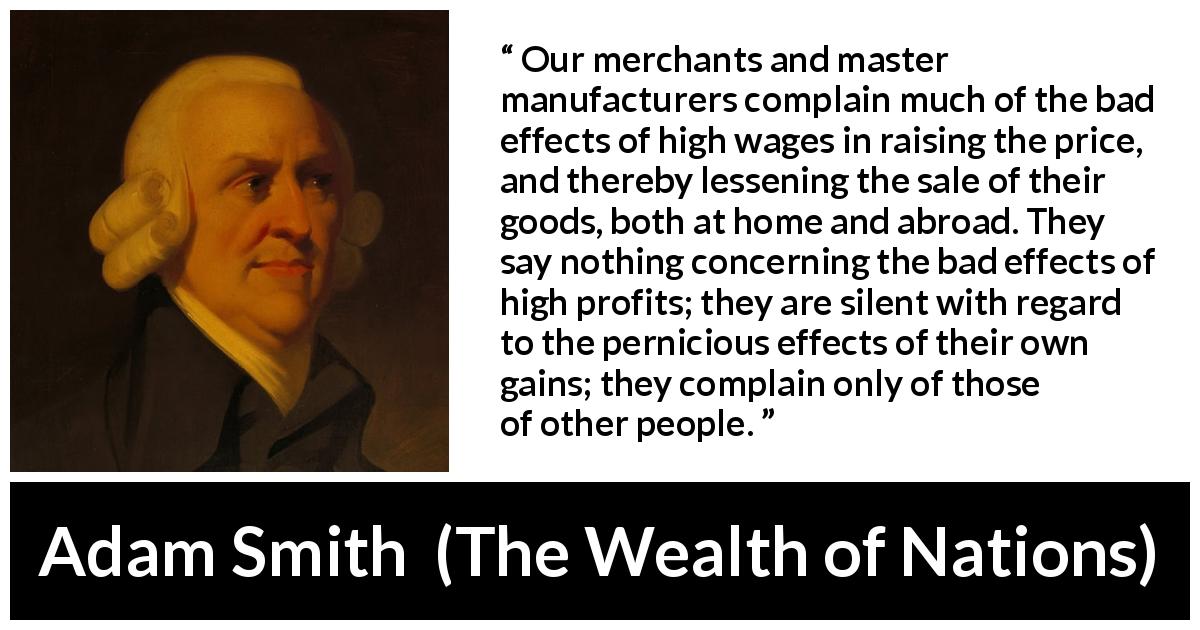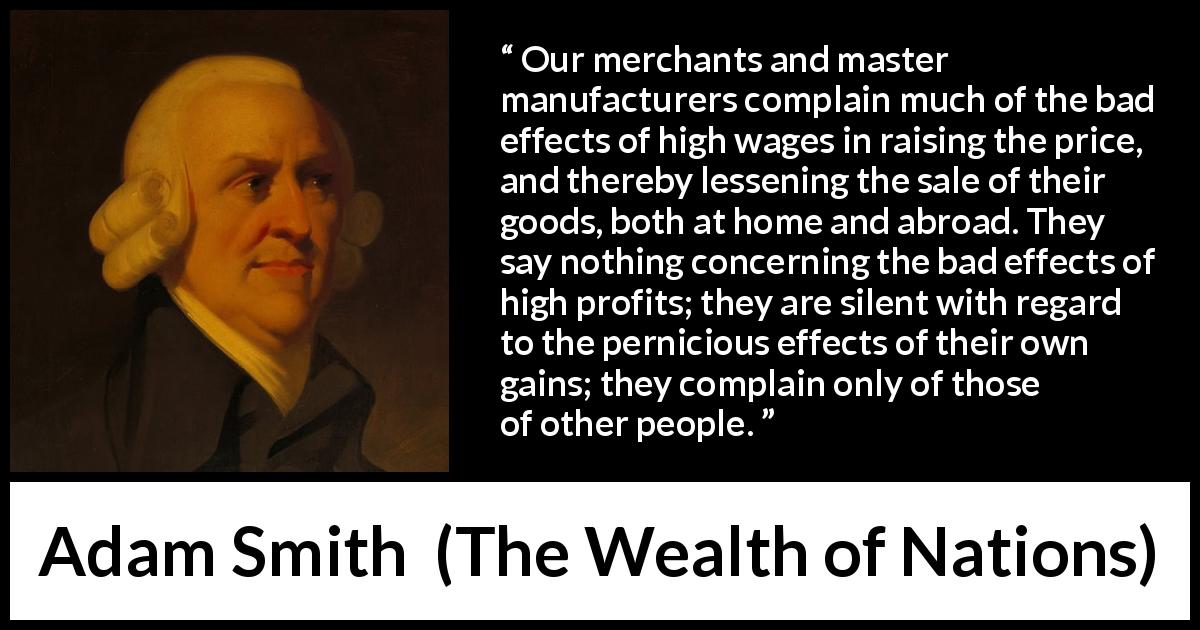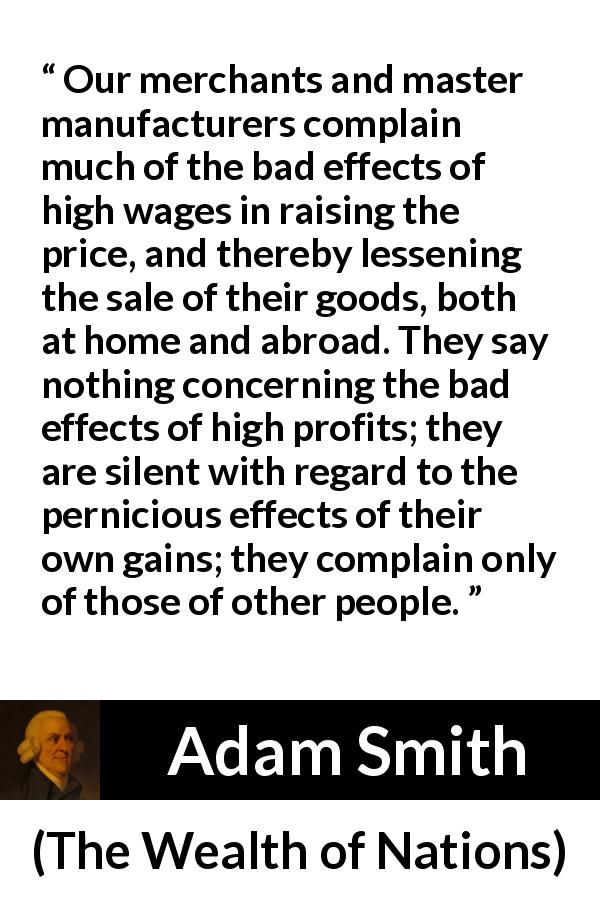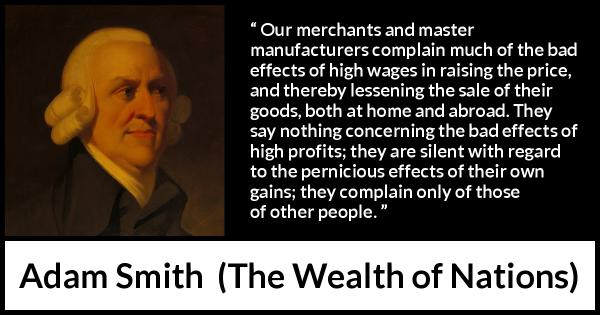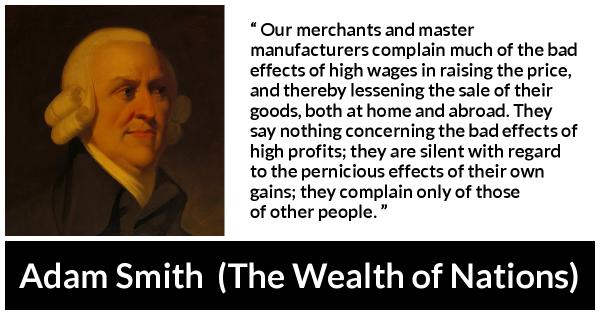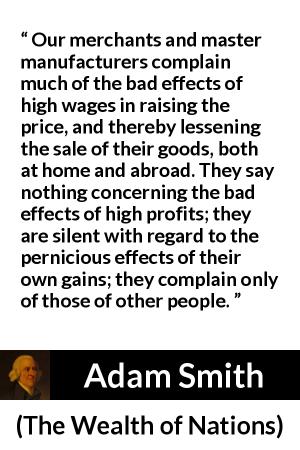“ Our merchants and master manufacturers complain much of the bad effects of high wages in raising the price, and thereby lessening the sale of their goods, both at home and abroad. They say nothing concerning the bad effects of high profits; they are silent with regard to the pernicious effects of their own gains; they complain only of those of other people. ”
Adam Smith, The Wealth of Nations (1776). copy citation
| Author | Adam Smith |
|---|---|
| Source | The Wealth of Nations |
| Topic | profit greed wages |
| Date | 1776 |
| Language | English |
| Reference | An Inquiry into the Nature and Causes of the Wealth of Nations |
| Note | |
| Weblink | http://www.gutenberg.org/files/3300/3300-h/3300-h.htm |
Context
“both upon the advanced price of the linen-yarn, and upon the wages of the weavers. In raising the price of commodities, the rise of wages operates in the same manner as simple interest does in the accumulation of debt. The rise of profit operates like compound interest. Our merchants and master manufacturers complain much of the bad effects of high wages in raising the price, and thereby lessening the sale of their goods, both at home and abroad. They say nothing concerning the bad effects of high profits; they are silent with regard to the pernicious effects of their own gains; they complain only of those of other people.
CHAPTER X. OF WAGES AND PROFIT IN THE DIFFERENT EMPLOYMENTS OF LABOUR AND STOCK. The whole of the advantages and disadvantages of the different employments of labour and stock, must, in the same neighbourhood, be either perfectly equal, or continually tending to equality.” source
CHAPTER X. OF WAGES AND PROFIT IN THE DIFFERENT EMPLOYMENTS OF LABOUR AND STOCK. The whole of the advantages and disadvantages of the different employments of labour and stock, must, in the same neighbourhood, be either perfectly equal, or continually tending to equality.” source
